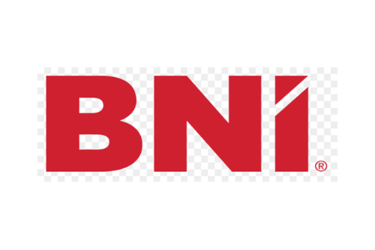AI Transforming Healthcare Insurance
Executive Summary
The healthcare insurance landscape is currently undergoing a significant transformation. With claims volumes reaching billions annually and member expectations for digital-first experiences at an all-time high, insurance leaders are at a critical juncture. The decision to evolve with AI-powered operations is not a future consideration, but a pressing need to avoid competitive displacement.
Forward-thinking insurance executives are realising that enterprise AI platforms offer more than just operational efficiency. They provide strategic competitive advantages that directly impact member satisfaction, operational costs, and market positioning. The question is not whether to implement AI, but how quickly you can scale intelligent automation across your entire operation.


The Insurance Operations Challenge
Healthcare insurance operations today resemble a complex logistics network processing millions of transactions daily. Consider the operational complexity:
Claims adjudication: Processing routine medical, dental, and pharmacy claims with varying complexity levels
Member services: Handling benefit inquiries, coverage verification, and care coordination
Provider relations: Managing network adequacy, credentialing, and performance analytics. Risk management: Fraud detection, utilisation management, and actuarial modelling
Traditional approaches using legacy systems and manual processes create bottlenecks that impact every stakeholder—from frustrated members waiting for claim approvals to overwhelmed staff managing repetitive administrative tasks.
The AI-First Insurance Platform Advantage
Leveraging Your Existing Microsoft Investment
Many healthcare insurance organisations have already made substantial investments in Microsoft 365 and Office 365 ecosystems. The good news is that modern AI platforms don't require a complete technology overhaul. Instead, they seamlessly integrate with these existing foundations through Microsoft Copilot Studio, providing a reassuring continuity and enhancing your current technology stack.
Copilot Studio for Insurance Operations: Your current Microsoft environment becomes the launchpad for intelligent automation. Claims processors, member services representatives, and underwriting teams can deploy AI agents directly within familiar Office applications—from Excel-based actuarial models to Teams-integrated member communications.
Seamless Workflow Creation: Copilot Studio enables rapid deployment of insurance-specific agents for routine tasks like benefit verification, claim status inquiries, and provider directory searches. These agents integrate natively with SharePoint document libraries, Outlook email workflows, and Power BI analytics dashboards.
However, enterprise insurance operations demand capabilities beyond Copilot Studio's core functionality. The gap between Copilot Studio's score functionality and enterprise insurance needs underscores the crucial role of strategic workflow orchestration in gaining a competitive advantage.
Advanced Workflow Orchestration Beyond Microsoft
Whilst Copilot Studio excels at productivity scenarios, complex insurance workflows demand sophisticated orchestration across legacy systems, third-party applications, and external data sources. Healthcare organisations can address strategic gaps in Microsoft's ecosystem by leveraging advanced workflow automation platforms.
N8N Workflow Integration: Advanced workflow orchestration platforms like N8N provide the missing connectivity layer, enabling Copilot Studio agents to interact with:
Legacy claims processing systems (mainframe integration)
Provider credentialing platforms (real-time status updates)
Pharmacy benefit management APIs (formulary checking and prior authorisation), External data sources (medical coding databases, regulatory feeds)
Hybrid Intelligence Architecture: This combination creates powerful synergies where Copilot Studio handles user-facing interactions whilst N8N orchestrates complex backend processes. For example, a member inquiry about coverage triggers a Copilot agent that seamlessly coordinates with N8N workflows to verify benefits across multiple systems and return comprehensive responses in seconds.
.
.
Intelligent Claims Processing
Automated Adjudication at Scale: AI-powered claims engines process routine claims in minutes rather than days, with accuracy rates exceeding 95%. Advanced pattern recognition identifies complex cases requiring human review whilst automating straightforward approvals.
Predictive Fraud Detection: Machine learning algorithms analyse claim patterns, provider behaviours, and member histories to identify potential fraud before payments are processed. This proactive approach saves millions annually whilst protecting legitimate claims from unnecessary delays.
Dynamic Prior Authorisation: Intelligent systems evaluate medical necessity using clinical guidelines and member history, providing instant decisions for routine procedures whilst flagging complex cases for clinical review.
To be completed....






